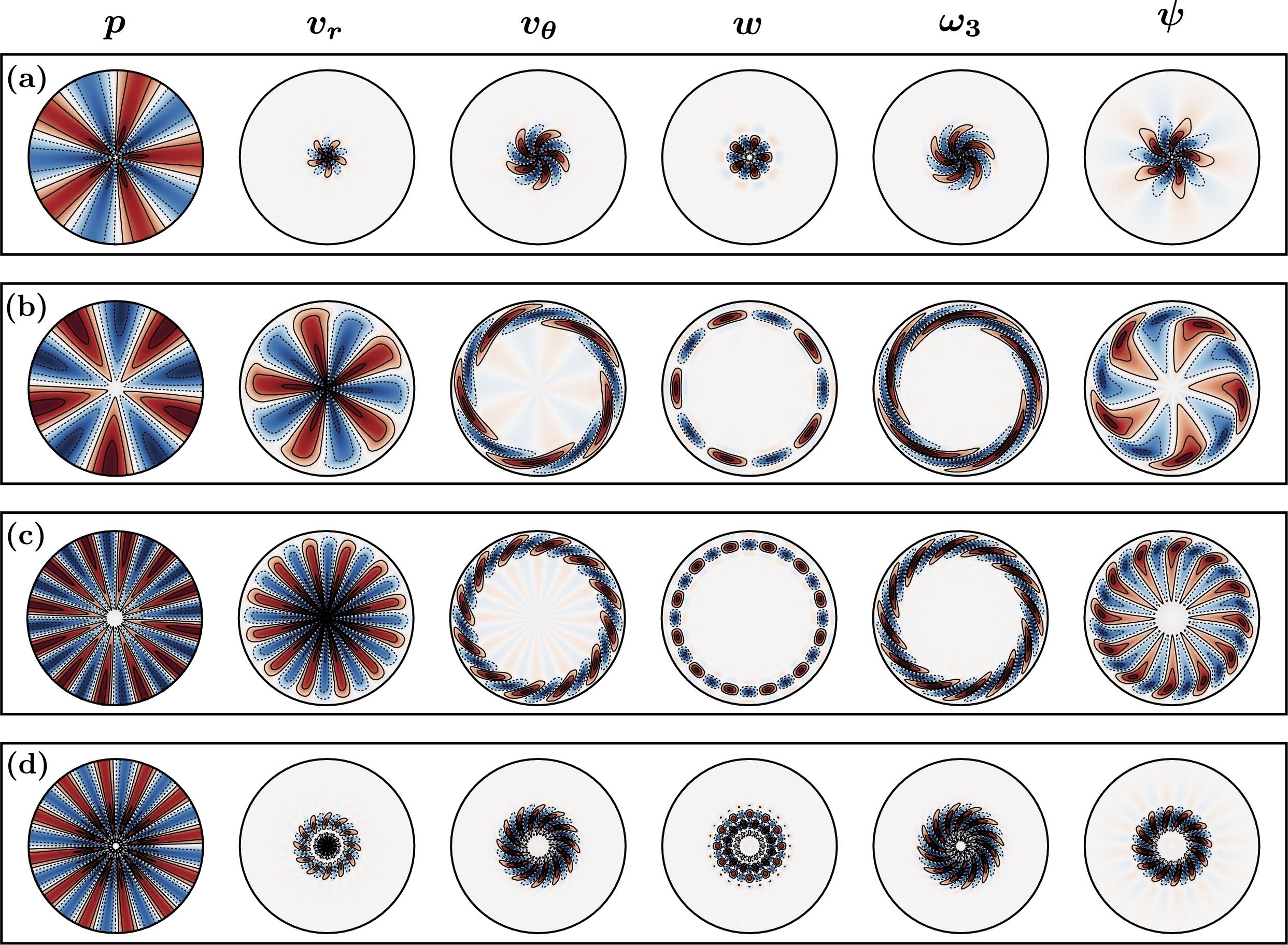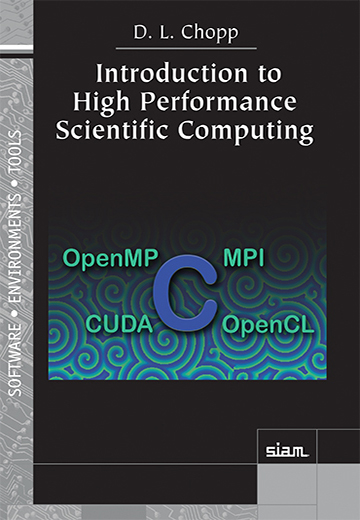Research / Application AreasScientific Computing
Faculty
Recent Publications
Jump to a Section
Spectral Methods
Spectral methods are very efficient numerical algorithms for solving partial differential equations in relatively simple geometries. The numerical errors introduced by spectral algorithms typically decrease exponentially as the resolution increases, leading to very accurate solutions. While Fourier spectral methods are a classical numerical algorithm, new advances in recent years have led to optimally sparse methods for solving partial differential equations in non-periodic domains, including spheres and cylinders.
relatively simple geometries. The numerical errors introduced by spectral algorithms typically decrease exponentially as the resolution increases, leading to very accurate solutions. While Fourier spectral methods are a classical numerical algorithm, new advances in recent years have led to optimally sparse methods for solving partial differential equations in non-periodic domains, including spheres and cylinders.
Core Faculty
A. Bayliss, D. Chopp, D. Lecoanet, M.J. Miksis
High Performance Computing
As mathematical models become increasingly more detailed and complex, the equations to be solved rapidly exceed our ability to solve them analytically. When this happens, numerical solutions become a useful tool to get a picture of how a system behaves. Then again, as the models become more complex, the size and speed of the computing resources can often become a factor, and designing efficient and accurate computational methods can mean the difference between solving and not solving an important problem.
rapidly exceed our ability to solve them analytically. When this happens, numerical solutions become a useful tool to get a picture of how a system behaves. Then again, as the models become more complex, the size and speed of the computing resources can often become a factor, and designing efficient and accurate computational methods can mean the difference between solving and not solving an important problem.
Topics in scientific computing are at the interface between mathematics and computer science. A specialist in scientific computing must wear multiple hats, as he or she must not only understand the application being modeled, but also the equations to be solved, the numerical methods best suited to solve them, and the appropriate computer hardware to implement those methods.
Research in scientific computing involves both the creation of new numerical methods and algorithms for emerging mathematical models and the redesigning of existing algorithms for emerging computer architectures.
Core Faculty
A. Bayliss, D. Chopp, D. Lecoanet, M.J. Miksis

